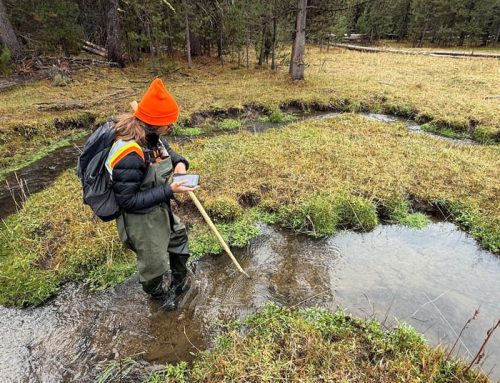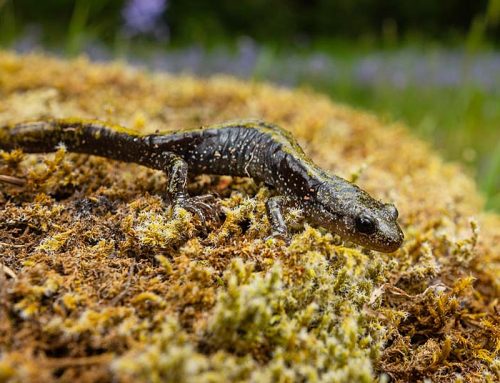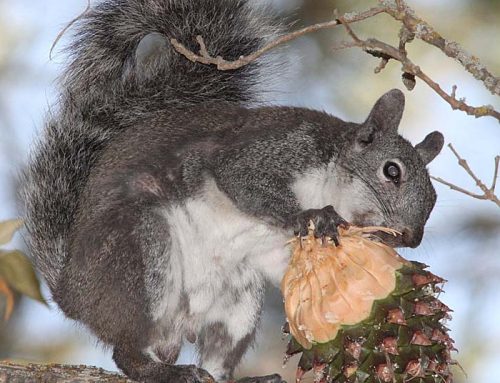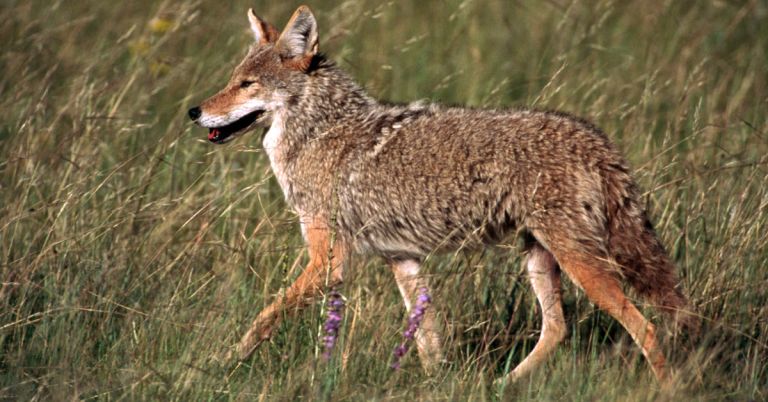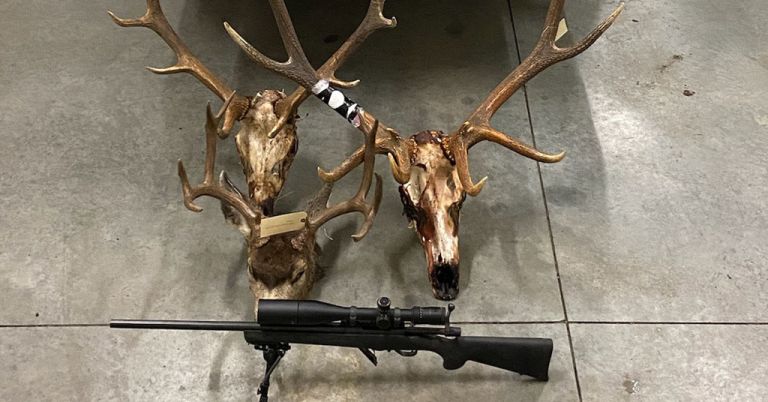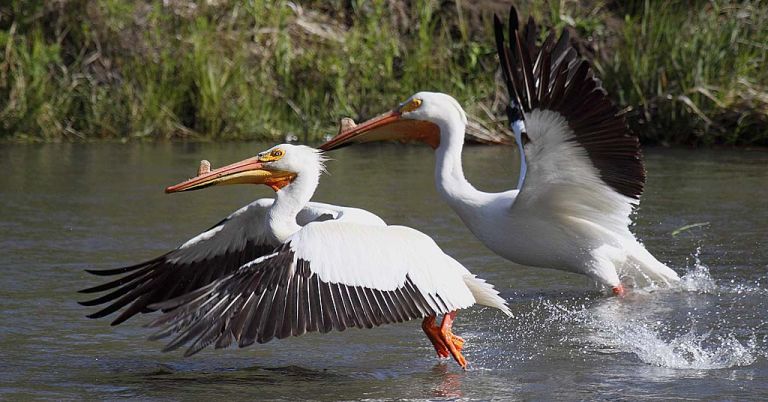An aggressive campaign includes the state’s first dedicated prosecutor tasked with bringing poachers to justice. Will it work?
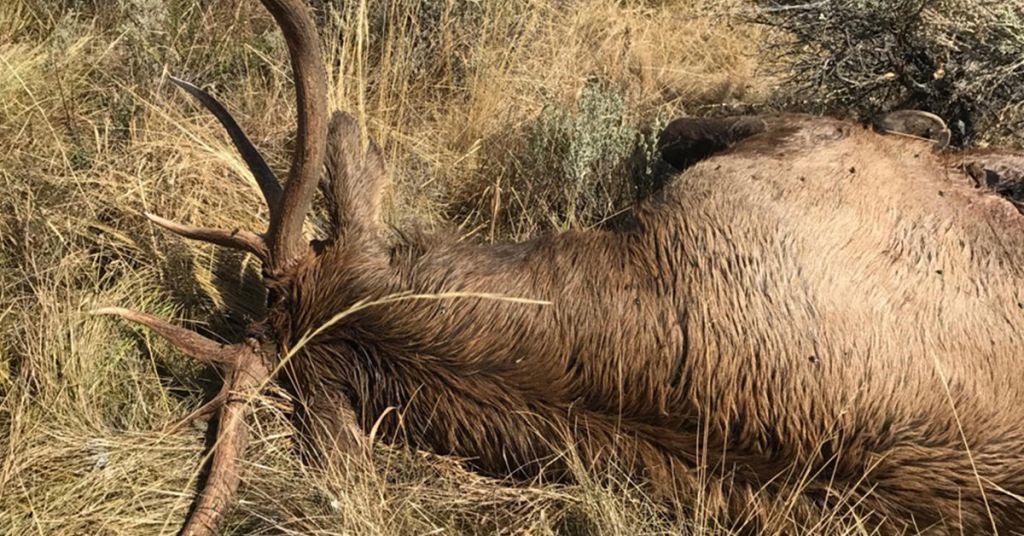
Senseless slaughter: This dead bull elk in Oregon’s Harney County appeared to have been shot with a high-powered rifle and left to waste by poachers. Photo: Oregon State Police
By Cole Sinanian. May 12, 2022. “We’re not messing around anymore with poachers,” says Oregon Representative Ken Helm. “From now on, there’s going to be people watching.”
Helm, a Democrat from Beaverton, co-chairs the Oregon House of Representatives Wildlife Caucus.
He’s among a cohort of bipartisan lawmakers leading the state’s legislative charge against wildlife crime, which ramped up in 2020 with the formation of the Stop Poaching Campaign—a multi-pronged, state-funded effort to increase poaching prosecution rates and raise public awareness.
Supported by several conservation groups and nonprofits, the Stop Poaching Campaign is a response to a worrying trend, with high-profile poaching busts, slaughtered wolves and so-called “thrill kills” on the rise.
Covid delayed the program’s official rollout, but with the recent hiring of a new special poaching prosecutor, four additional state troopers and an aggressive public awareness campaign, Helm says Oregonians should expect more poaching arrests and a boost in wildlife populations in the coming years.
“In the end, these efforts should increase the abundance of both game and non-game species, so you should be seeing more deer and wildlife out there,” says Helm.
Poaching prosecutor arrives
Because poaching often occurs in remote areas, wildlife crimes can be exceptionally difficult to detect.
Most often, poachers are caught only when someone they’ve bragged to reports them to authorities. A recent report from Montana-based hunting and conservation organization Boone and Crockett Club estimated that no more than 3% of poaching incidents are detected by law enforcement.
“Serious, professional poachers are rarely caught,” says Steve Hagan, vice president of the Oregon Hunter’s Association. “They don’t ever talk about what they did, they don’t post pictures on social media. They know how to shut up.”
With Democratic Representative Brad Witt and former Republican representative Wayne Krieger, Helm worked to get poaching on the legislative agenda, culminating in a House bill passed in 2019 (HB 3035).

Chasing change: Jay Hall. Photo: Oregon Dept. of Justice
The legislation set aside funding for the Stop Poaching Campaign and increased poaching penalties.
The Stop Poaching Campaign uses a three-prong approach, Shaw says. She was hired in 2019 as part of the campaign’s public awareness prong, along with four additional state troopers and one sergeant to increase detection.
Funding for the campaign was halted in 2020 due to the pandemic, but fully restored this year, allowing the state to hire a new special prosecutor to specifically tackle wildlife crimes.
MORE: Group says state wildlife agency values hunters over conservation, aims for reforms
The prosecutor, Jay Hall, started in February, and will work statewide to help local judges short on time and resources to prosecute poachers.
Hall’s position is meant to ensure that poachers are prosecuted to the fullest extent of the law—an important win, given that in the past limited resources often meant poaching cases were low priority for local judges.
Hall’s office responded to an interview request by telling Columbia Insight he’s occupied with settling details of his new position and unable to comment because all of his initial cases remain active.
Are fines enough?
One challenge Hall may face concerns fines, which in the past have often been lightly assessed.
Fines for poaching in Oregon went up in 2017. But convicted poachers often end up paying less than the maximum allowable amount due to legal technicalities and lenient judgements.
In 2021, a poacher in Wheeler County who used a semi-automatic rifle to shoot a buck deer multiple times from the road, then left the animal mortally wounded, was sentenced to a one-year hunting suspension, forfeiture of his firearm, $1,000 in fines and a letter of apology to a private landowner.
MORE: Grizzlies in the Cascades? Lawsuit seeks to reverse shutdown of bear recovery program
State officials and conservationists are enthusiastic about Hall’s appointment. Now that there’s a roaming poaching prosecutor, the expectation is that convicted poachers will be punished to the fullest extent of the law.
But will fines be stiff enough to deter poaching?
In Oregon, poaching a black bear carries a $7,500 fine and suspension of hunting privileges.
However, fines now top $50,000 for some species (moose, mountain goat, sheep with horns) and can lead to suspension of hunting licenses and weapons seizure.
Wildlife crimes on the rise
When Helm entered office in 2015, he quickly became troubled by Oregon’s high rates of wildlife crime.
Commonly reported incidents included black bear poaching (animals prized for their gallbladders, which are used in traditional Chinese medicine), trophy kills targeting deer for their antlers and poached sturgeon, killed for their caviar.

Salem light: Rep. Ken Helm. Photo: Andie Petkus Photography
According to Steve Hagan of the Oregon Hunter’s Association, the past five years have also seen an increase in “thrill kills,” a form of poaching in which the only motive is an itchy trigger finger.
“To shoot something in a field and just let it lie there and rot, it’s not something I can relate to,” says Hagan. “I get the impression that some of it is people getting bored with video games and wanting real life targets.”
Sturgeon populations, which are especially vulnerable to poaching due to their long life cycles and slow regeneration time, have been nearly pushed to the brink. They’re highly lucrative, with sturgeon caviar selling for up to $200 an ounce on the black market.
“These instances of poaching we’re seeing, specifically with sturgeon populations, are definitely impacting the abundance of the overall population,” says Stop Poaching Campaign coordinator Yvonne Shaw.
In March, Oregon State Police (OSP) troopers seized five sturgeons—one over seven feet long, indicating it was likely more than 50 years old—from poachers in Scappoose Bay near St. Helens. The poachers could now face felony charges.
According to statistics from OSP, troopers recover around 60 poached sturgeon each year. In 2019, OSP reported 324 illegally harvested big game, increasing to 447 in 2020. There were 234 big game animals poached in 2021.
Rewards for tipsters
Through the Oregon Department of Fish and Wildlife (ODFW), the Oregon Hunters Association funds the Turn In Poachers (TIP) rewards system, providing cash rewards to people who offer information to authorities leading to the arrest or citation of a poacher.
In 2020, ODFW reported that 61 TIP checks were paid out, totaling $20,599.
But while the TIP rewards system has proven successful in incentivizing the reporting of poachers, the rewards are applied only to animals listed as game species—animals that can legally be hunted in Oregon. This excludes protected and endangered nongame species such as certain raptors, reptiles, fish and amphibians.
[perfectpullquote align=”full” bordertop=”false” cite=”” link=”” color=”” class=”” size=””]“I get the impression some of it is people getting bored with video games and wanting real life targets.” —Steve Hagan, Oregon Hunter’s Association[/perfectpullquote]
Gray wolves, of which there are only 175 in Oregon, technically have game status, although they cannot legally be hunted.
“There’s been a lot of focus on addressing only the species we hunt and fish, but there’s lots of other animals out there being killed,” says Danielle Moser, wildlife program coordinator for conservation group Oregon Wild.
Oregon Wild is part of the Oregon Wildlife Coalition, a coalition made up of nine wildlife conservation groups working closely with the Stop Poaching Campaign and the Oregon Legislature to support anti-poaching efforts.
In March, the group began funding Oregon’s first standardized cash rewards program for nongame species. The program offers $500 for information regarding raptors and mammals like cougars, bobcats and beaver, and $1,000 for information regarding federal or state listed endangered species like wolves, wolverine, lynx and otter.
“The list of species covered under the Oregon Hunters Association program is narrow,” says Moser. “One or two instances of poaching could set back an entire recovery for threatened or endangered species.”
Wolves a target
Wolves have faced the brunt of Oregon’s poaching problem in recent years. Gray wolves, which were driven to the brink of extinction in the mid-20th century, have been making a slow recovery since the introduction of the state’s wolf management plan in 2005.
But poachers have been unrelenting, raising concerns about the future of Oregon’s wolf population.
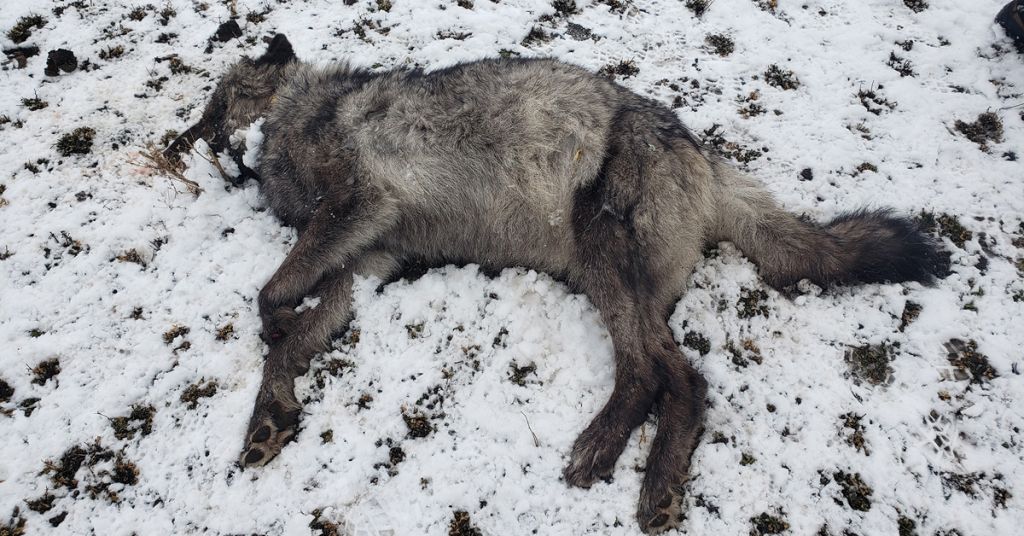
Illegal kill: This female wolf was killed in Union County in February 2022. Photo: ODFW
In February 2021, an entire pack of eight wolves was found dead by state troopers in Eastern Oregon, having been poisoned. Moser says the incident helped make 2021 one of the deadliest on record for wolves in Oregon.
So far in 2022, there have been three reported wolf poachings, at a rate that may end up topping 2021’s.
Animals ‘belong’ to everyone
Since the program began, the OWC has paid $1,000 in rewards—two $500 payouts for the poaching of two Cooper’s Hawks. Both hawks died after being shot with BB guns, Moser says.
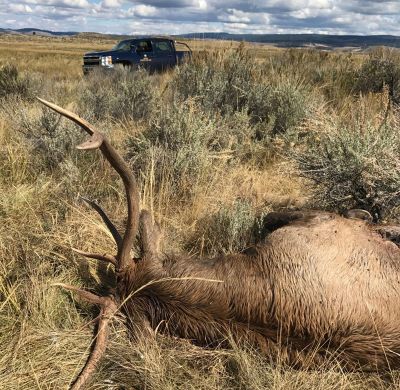
Big picture: Oregon lawmakers are finally taking a broader view of poaching. Photo: Oregon State Police
The state of Oregon views poaching as a form of theft, legally classifying the state’s diverse wildlife as one of its most valuable natural resources.
“When a poacher takes an animal, they take it away from everyone forever,” says Shaw. “That means it can’t be harvested or encountered by a hiker or kayaker. It can’t be photographed. It’s just gone from the landscape.”
MORE: What does ‘quasi-extinction’ actually mean?
When combined with the worsening effects of climate change and the habitat destruction caused by rapid urbanization, the poaching of already stressed wildlife populations can tip the scale dangerously close to ecological collapse.
But beyond that, Helm says there’s a deeper moral imperative to ensure that Oregon’s fauna is treated with dignity.
“They deserve our respect,” he says. “Our fish and wildlife deserve to be protected from human interference. They don’t deserve to be wantonly killed.”


